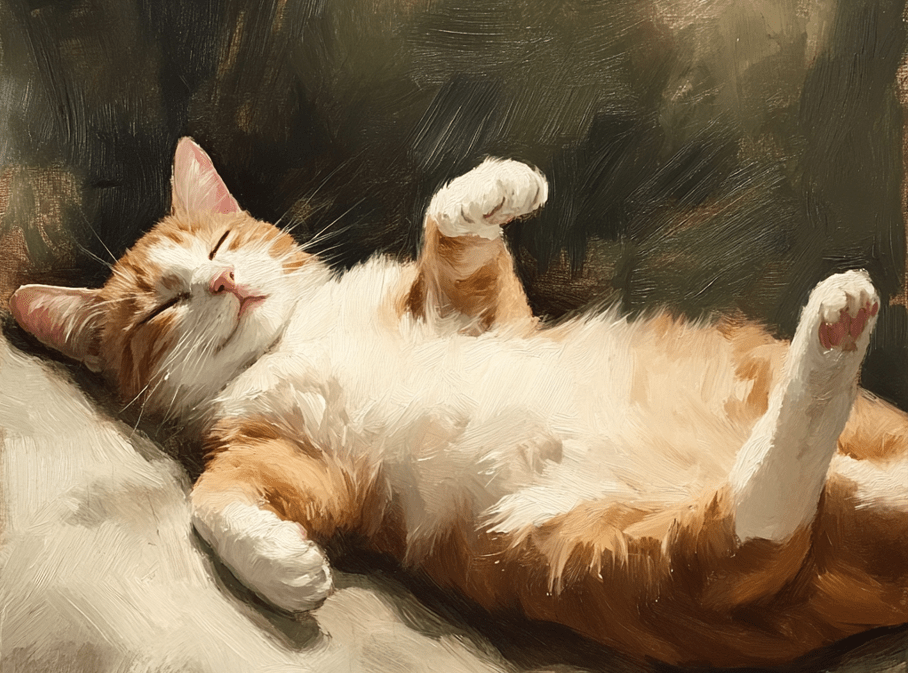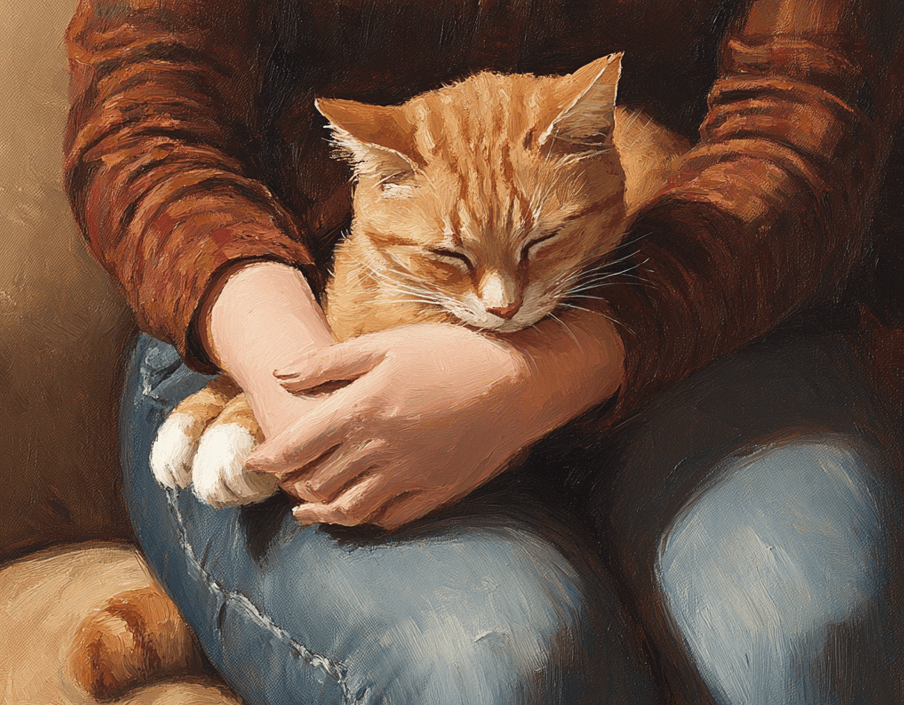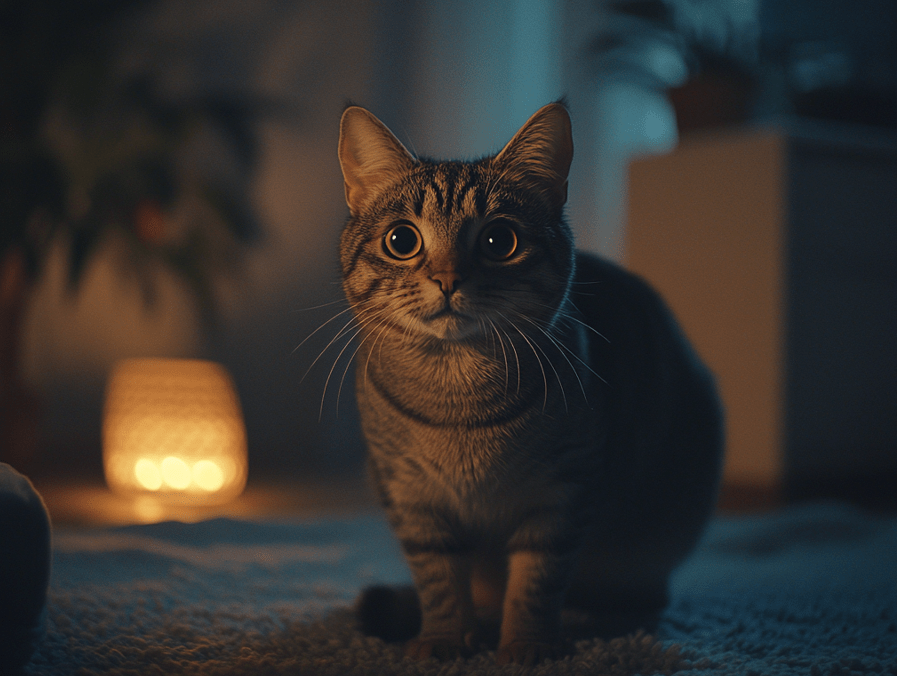
Cats can meow at night for many reasons like being bored, not enough mental stimulation, feeling lonely or wanting to go outdoors. If your cat keeps vocalizing at night, despite more playtimes with you, he may have true thyroid or renal failure.
Why Does My Cat Meow at Night: 6 Common Reasons and What to Do About It
Wondering why your cat vocalizes during the nighttime hours? That is more than understandable! These are six common reasons a cat might meow at you from the shadows of night:
To watch the summary of this article, just watch this video-
1.Natural Nighttime Activity
Nighttime vocalizations are common among cats that are naturally crepuscular, meaning they tend to be most active around dawn and dusk. Most people think that cats are nocturnal, however they are more accurately described as crepuscular, meaning they live for the twilight hours when they have a chance to hunt. While most cats adapt to the schedules of their people, this crepuscular characteristic can cause them to be sprayer than many owners would prefer early in the morning while the household is asleep.
Cats will naturally be up at night if they are in hunting mode, especially younger kittens. But as they get older, they tend to align with the household schedule, which may lessen their nocturnal yowling.
2.Your Cat Could Be Bored Or Not Mentally Stimulated
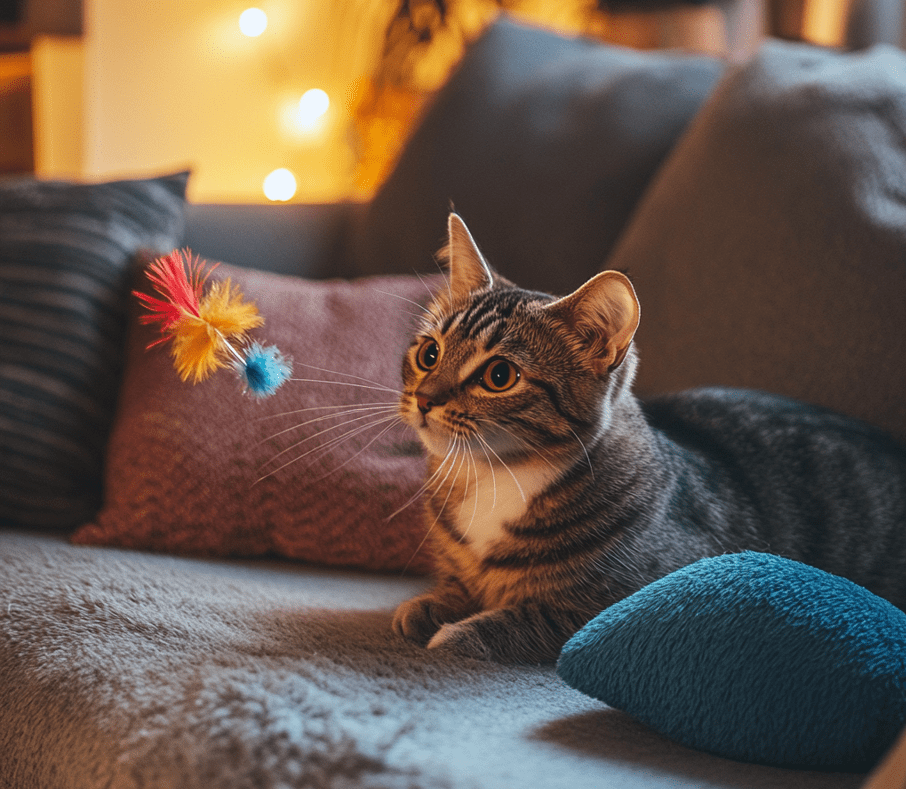
If your cat is crying at night, it could be just boredom or lack of activity, which means that you did not tire your feline buddy enough that day. An active play through the day, will help him relax before sleep and will help his brain to keep dull during night. Note that cats meowing at night is often another way that they seek attention from you.
Meeting your cat needs is fine, however, if you respond to each call they do for attention then they will feel encouraged to request it more. If the meowing occurs at night on a regular basis, withdraw your response. Indoor cats (especially if they do not have access outdoors) need regular play sessions during the day. When you go to bed, however, they might feel neglected without enough stimulation and yowl through the night.
3.Hyperthyroid or Kidney Disease
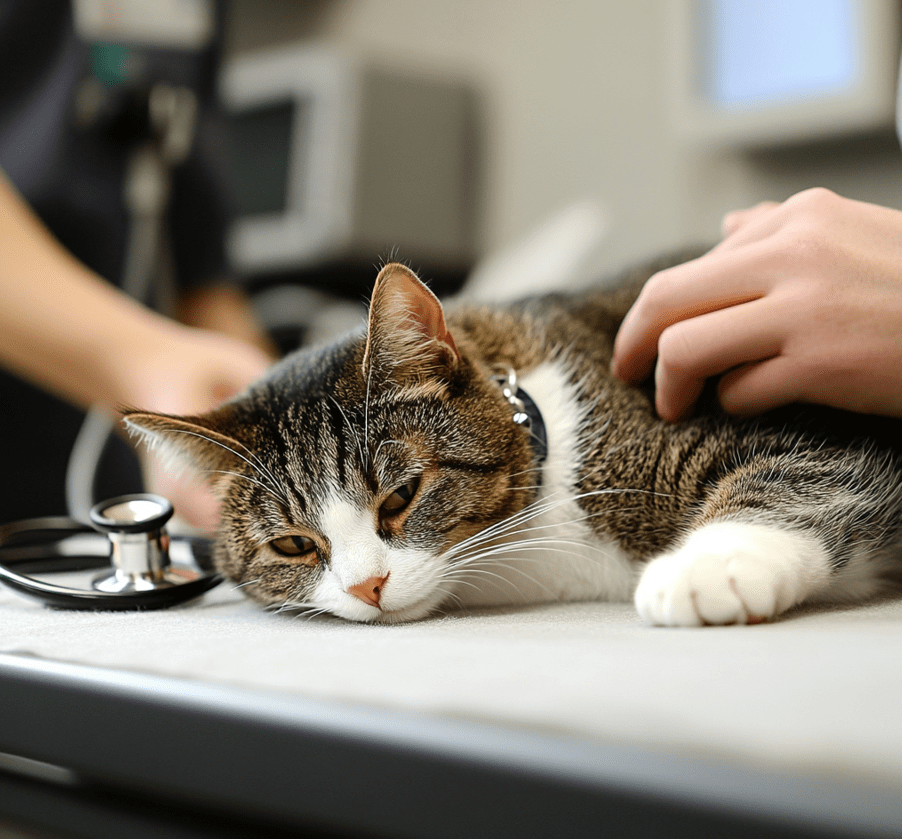
Recurring nighttime meowing may be a symptom of a medical problem in cats such as hyperthyroid or kidney disease. If your cat keeps meowing at night, you should see a veterinarian to check the health condition.
4.An Age-Related Symptom in Older Cats
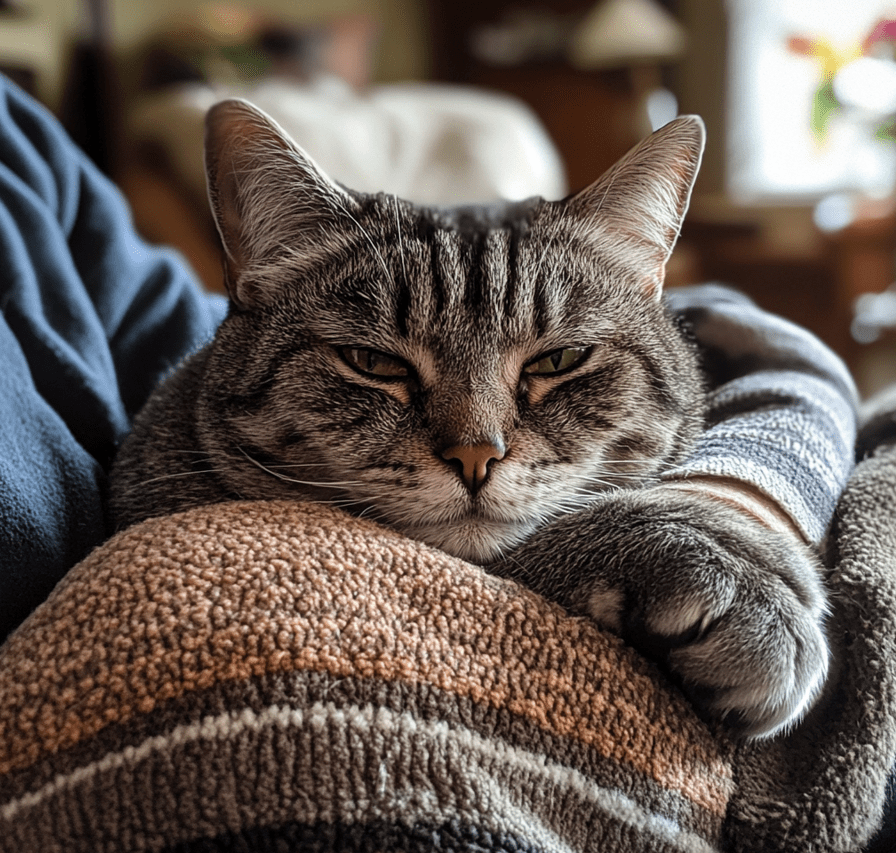
Like humans, as cats grow older they undergo changes that may affect their cognitive abilities. Cognitive Dysfunction Syndrome (CDS) is a condition associated with age-related changes in the brain, resulting in disorientation and other signs, such as meowing at night.
5.Indoor Cats May Feel Stuck Inside
Cats that are kept inside at night, but normally allow outdoors during the day can feel trapped and may cry in response. If it is safe you can install a cat flap if you want to give them some freedom at night and the ability to not feel trapped.
6.Yowling at Night: A Sign of Mating Behavior in Cats
One such behavior includes yowling at night, which cats do when they are in mating season. This is normal behavior, but you definitely should get your cat spayed or neutered to prevent the arrival of surprise litters of kittens. It also means that there will be no more yowling noises disrupting peace.
But there are demonstrated extra reasons your cat might howl at night. This might come from boredom, getting old or health-related discomforts like thyroid dysfunction. But no matter the reason, you should never turn a deaf ear towards your cat’s plight. They are always trying to say something, and while pet owners often have trouble pinpointing exactly what it is, there seems to be a specific reason behind most forms of behavior.
6 Strategies to Stop Your Cat from Meowing or Crying at Night
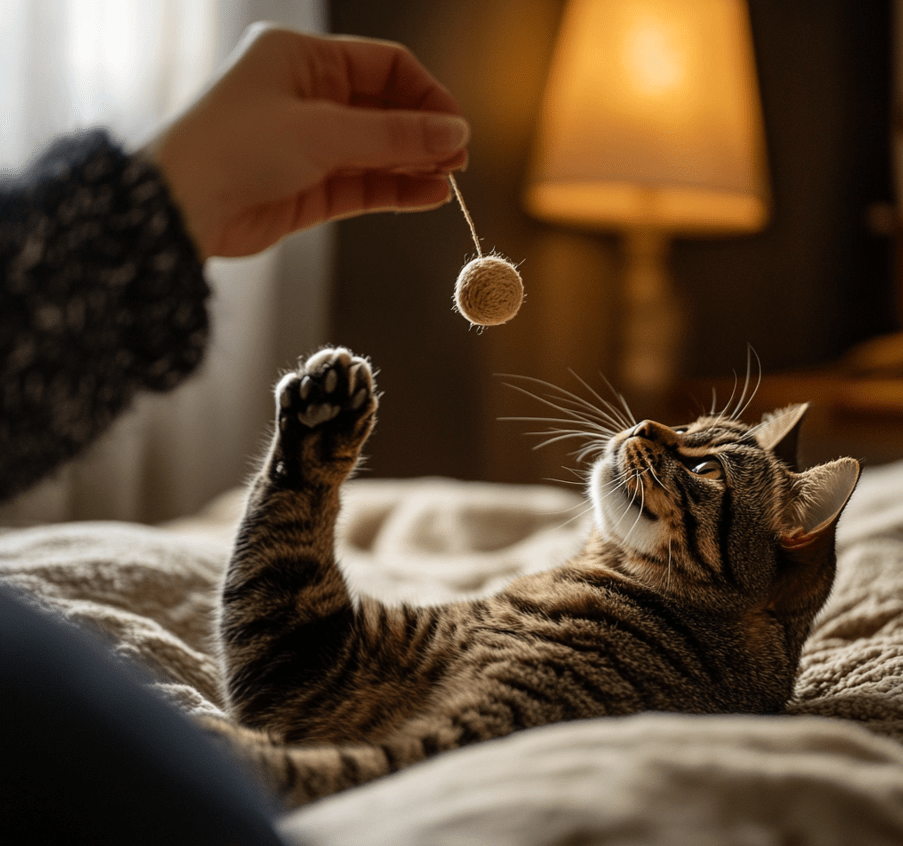
Before you can work on your cat meowing at night, the first step is taking him or her to a veterinarian for an examination to ensure there’s nothing physically wrong. And a vet can give you useful tips to avoid your cat from yowling at night so much. When no physical health issues are found, then alternative methods- how to prevent the behavior for example are explored. So what can we do? Try these things:
1.Daily playtime before going to bed:
If you have a very active cat or kitten, they might not end their day peacefully. Let them burn off some energy with exciting physical and mental games so they can sleep soundly, when the time comes.
2.Leave food and water out:
Your cat meowing at night because he or she is hungry or thirsty? Before heading to bed, fill up their food and water bowls so that they can eat and hydrate throughout the night.
3.Clean the litter box:
Cats are very particular about their home, especially when it comes to hygiene. An unhygienic or odorous litter box can be uncomfortable, and encourage night yowling. So, before going to bed — clean the litter box in order not to face this problem.
4.Give attention:
Your cat may just want some attention and love. Preparing them for bedtime with cuddles or gentle play can also give them the calmness and security they need to sleep.
5.Do not respond to night meows:
If your cat is asking for attention at night, the best way to stop it is often just not paying attention. This is something we must make a distinction on, as meowing due to discomfort or illness will require immediate veterinary assistance and cannot be compared to regular meows of an attention-seeking cat.
6.Remove Distractions:
Cats have a more sensitive environment than ours, the outside world noises or lights may disturb their sleep. Make sure that your cat is not being kept awake by anything like lights or sounds. As a suggestion, consider closing off automatic light or some outside distractions to allow them to sleep.
Cats communicate through body movements, of course recognizing them can help you understand your cat’s needs but not all possess this skill. To learn more about read your cat’s behavior, check out our article on interpreting cat body language.

